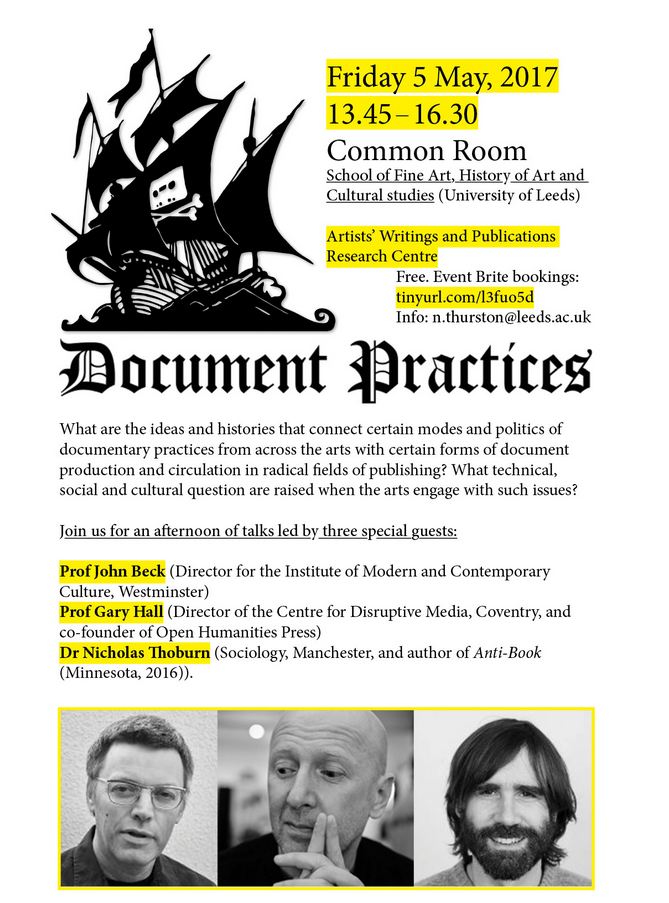The Inhumanist Manifesto
 Friday, August 11, 2017 at 10:05AM
Friday, August 11, 2017 at 10:05AM 'The Inhumanist Manifesto' is taken from the forthcoming inaugural 'manifesto' issue of Media Theory. It is currently available as a blog post on the Media Theory site here.
In the spring of 2017 I was invited to help launch a new open access journal, Media Theory. The idea was that a number of authors would each produce a manifesto as to why such a journal was necessary and what they would like to see it do.
I responded by acknowledging that, although the manifesto mode of political writing is associated with some of the themes and topics I’ve engaged with the most--posthumanism, piracy, Marxism, open access, the commons--I was nevertheless hesitant to take up such an invitation. I’m not particularly interested in setting agendas or laying out policies with my work. Nor do I wish to get involved in debates. Yet the reason I hesitated was not just because I’m reluctant to promote new ideas with prescriptive notions about how to carry out those changes I believe need to be made. Nor was my wavering over the writing of a manifesto simply due to a concern that the power of this particular textual form of communication may have waned as a result of too much unthinking repetition, and an associated preference on my part for less obvious ways of acting. Having launched an open access theory journal myself a number of years ago--Culture Machine--I was also aware there was danger of coming across as if I was telling those behind Media Theory what they should do with their journal.
Sometimes the most responsible decision anyone who has attained even a modest position of authority can make is to step aside after a while. Of course, it can be difficult to relinquish what are often hard-won roles. Neverthless it’s important to do so, regardless of any success, in order to create opportunities and openings for others. Which is why my colleagues and I decided to celebrate Culture Machine’s 15th anniversary by passing editorial control over the journal’s future direction on to Gabriela Méndez Cota and Rafico Ruiz, two early career theorists who are located in Mexico and Canada respectively. And I would no more consider telling the editors of Media Theory what to do with their journal than I would Gabriela and Rafico with Culture Machine.
Still, I wanted to take the opportunity to offer those involed in launching this new open access theory journal my continuing support. So if a manifesto can be understood as a public declaration of the views, motives or intentions of the issuer, I thought I would take the risk of replying to their invitation by briefly making obvious the theory that lies behind the development of Culture Machine and some of the other projects with which I’m involved. I would then leave it to them to decide how much, if anything, of this was relevant as far as their intentions for Media Theory were concerned.
The rest of 'The Inhumanist Manifesto' is available on the Media Theory site here.












